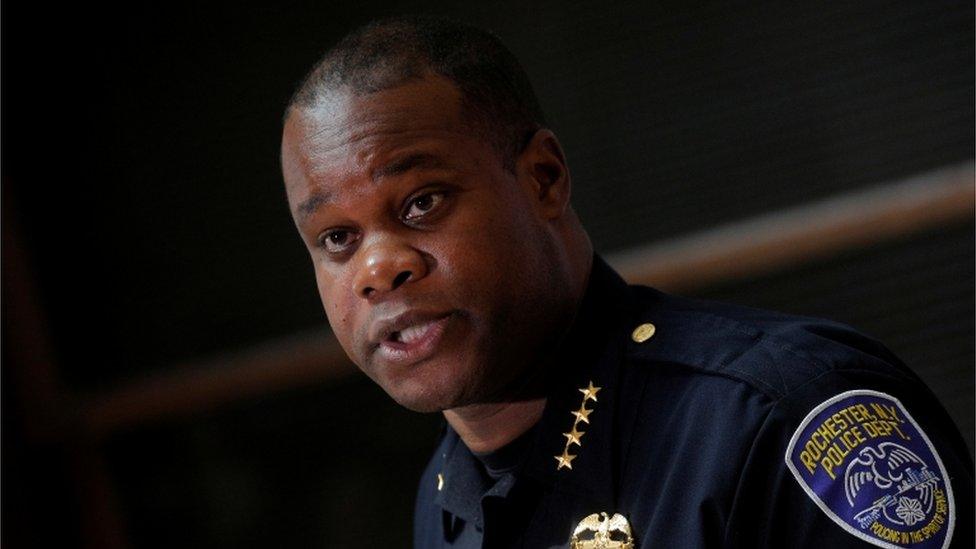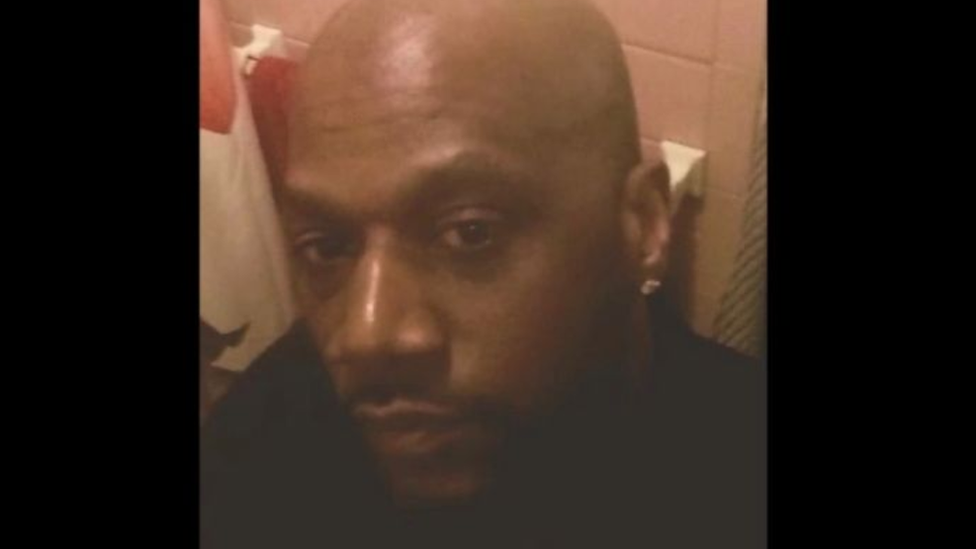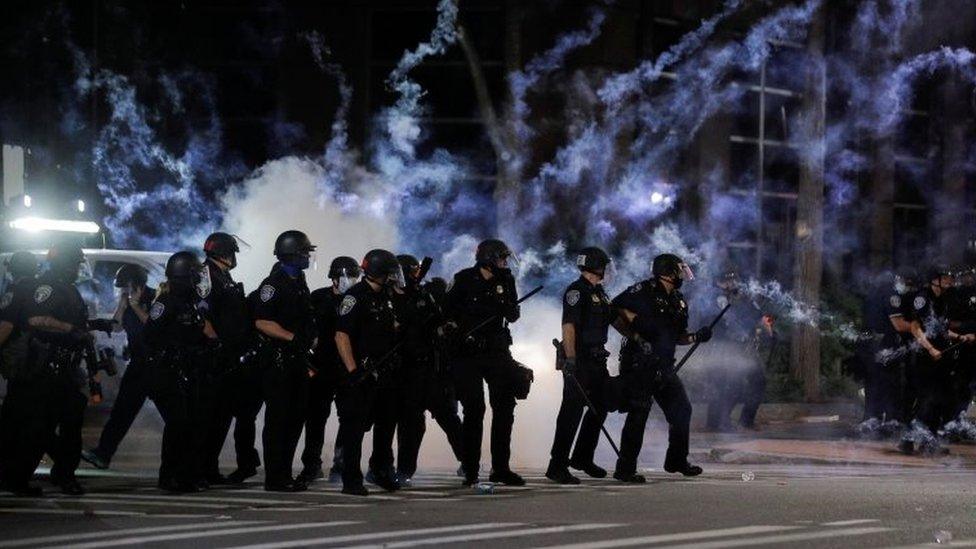Daniel Prude death: Rochester police leaders resign in protest at attacks
- Published

Rochester police chief La'Ron Singletary has retired, denying claims he tried to keep Daniel Prude's death from public scrutiny
The leadership of a New York state police force has stepped down following the death of a black man who was hooded and restrained during an arrest.
Announcing his retirement, Rochester police chief La'Ron Singletary said he could not stand by as his handling of the case was being distorted.
A grand jury will help determine whether charges should be brought over Daniel Prude's death in March.
Seven police officers involved in his arrest have been suspended.
Mr Prude, 41, was said to be suffering from acute mental health problems when police were called. Officers found him running naked in the street in light snowfall and restrained him with a "spit hood", which is designed to protect police from detainees' saliva.
Footage of the incident emerged only recently, igniting fresh protests three months after anti-racism demonstrations rocked the US following the death of George Floyd in Minnesota.

Daniel Prude died a week after he was restrained by police
What did the police chiefs say?
Chief Singletary said in his statement on Tuesday: "As a man of integrity, I will not sit idly by while outside entities attempt to destroy my character."
"The mischaracterisation and the politicisation of the actions that I took after being informed of Mr Prude's death is not based on facts, and is not what I stand for," he added.
Deputy Chief Joseph Morabito also said he would retire, adding that he had worked on the police force for 34 years.
The police chief has denied his department tried to keep details of Mr Prude's death out of public view.
The police union said officers had followed their training "step by step".
The spit hood is standard equipment for officers, said Michael Mazzaeo, president of the Rochester Police Locust Club, a union.
He added that the officers were in a difficult position trying to help someone who appeared to have a mental illness.

Protests in Rochester have taken place nightly following the release of the footage
President Donald Trump, a Republican who is accusing Democrats of being anti-police ahead of November's election, tweeted about the resignations.
"The Democrat Mayor and, of courses [sic], Governor Cuomo, have no idea what to do. New York State is a mess," he posted.
What did the mayor say?
Other senior commanders may also retire, Mayor Warren said according to AP news agency., external
The city leader has already said systemic racism led to Mr Prude's death.
Rochester Mayor Lovely Warren also said she had not asked for Mr Singletary's resignation.
"He did not in any way try to cover this up," she added.
Later on Tuesday, Mayor Warren said that Mr Singletary would remain in charge of the police department until the end of September.
"While the timing and tenor of these resignations is difficult, we have faced tough times before. We will get through this together," she said in a statement.
The USA's history of racial inequality has paved the way for modern day police brutality
The mayor said she would be meeting with city council "to chart a path forward", adding that she is "committed to instituting the reforms necessary in our police department".
Last week, when details of Mr Prude's death became public following a public records request, the mayor expressed frustration with the police chief for not informing her sooner of the case.
She said Mr Singletary had initially characterised Mr Prude's death to her as a drug overdose.
How did Daniel Prude die?
Police body camera video obtained by the family shows Mr Prude lying on the ground as officers restrain him. Mr Prude, who was not carrying a weapon, can be seen complying with officers immediately.
While sitting on the road, he becomes agitated, alternately asking for money or a gun and spitting on the ground.
An officer says Mr Prude told them he has Covid-19, and they place the spit hood on him.
George Floyd death: What’s changed, 100 days later?
One officer can be seen pressing down on Mr Prude's head with both hands, saying "stop spitting". Mr Prude stops moving and goes quiet, and officers note he feels cold.
Mr Prude was taken to hospital in an ambulance. His family agreed to him being taken off life support a week later on 30 March.
The Monroe County medical examiner ruled Mr Prude's death a homicide caused by "complications of asphyxia in the setting of physical restraint", according to a post-mortem examination.
The autopsy report also cited "excited delirium" and acute intoxication by phencyclidine, or the drug PCP, as contributing factors.